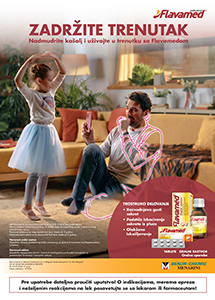CHILDREN’S PARICIPATION IN EXERSCISING THE RIGHT FOR HEALTH CARE
Keywords:
children's rights, participation, health careAbstract
Introduction: Health care tailored to each child requires better organization of health promotion, continuous application of children's right to health, improvement of intersectoral cooperation and involvement of child patients, their parents, health workers and health associates in the processes of positive movement of medical and legal sciences with the implementation of modern strategies and health policies.
Aim of the paper: The aim of the paper refers to the improvement of the health system through a greater degree of fulfillment of children's rights to health care, primarily through the engagement of children in the care of their health.
Methodology: The analysis method was used to investigate current legislation and practice in the field of children's right to health care, while the method of induction, as a fruitful method of modern science, was applied to draw conclusions about the links between individual examples of patients' rights. What was also considered was the degree of improvement of health care, in relation to the entire system and application of legal regulations in the Republic of Serbia. The sample consisted of 64 adolescents over 15 years of age who were hospitalized or treated on an outpatient basis at the Hospital for Children's Lung Diseases and TB. 104 parents of child patients and 69 health workers and associates who work with children at the KBC "Dr Dragisa Misovic-Dedinje" were also examined. Data were analyzed using the SPSS (Statistical Package for Social Sciences) version 14.0. Measures of descriptive statistics, frequencies and percentages were used in processing the results of the respondents.
Results: More than half of the surveyed adolescents (58%) have no information on children's rights in health care, one fifth of the respondents did not give an answer at all (18%), one fifth partially answered (20%), while only a few respondents (4%) responded positively, which indicates a very high degree of non-involvement of children in exercising their rights to health care, which is not in line with international recommendations.
Conclusion: In the implementation of children's right to health care, their active and constant participation is extremely important.
References
Zakon o ratifikaciji Konvencije Ujedinjenih nacija o pravima deteta, Službeni list SFRJ-Međunarodni ugovori, br. 15/90 i Službeni list SRJ-Međunarodni ugovori, br. 4/96 i 2/97
Golić-Ružić M. (Ur.), Dete u sistemu zdravstvene zaštite. Beograd: Centar za prava deteta; 2017.
Hallström I. Parent's and children’s involvement in decision-making during hospitalisation. Journal of Research in Nursing. 2004;9(4):263-269.
Guerreiro AIF, Kuttumuratova A, Monolbaev K, Boderscova L, Pirova Z, Weber MW. Assessing and Improving Children’s Rights in Hospitals: Case Studies from Kyrgyzstan, Tajikistan, and Moldova. Health and Human Rights Journal. 2016;18(1):235-248.
Moore L, Kirk S. A literature review of children’s and young people’s participation in decisions relating to health care. Journal of Clinical Nursing. 2010;19(15-16):2215–2225.
Elia A. (2014). Defining The Right To The Highest Attainable Standard Of Health For Children: A Short Overview Of The General Comment N˚ 15 Of The Un Committee On The Rights Of The Child.
Zakon o zdravstvenoj zaštiti, Službeni glasnik RS, br. 25/2019.
Waterston T, Goldhagen J. Why children’s rights are central to international child health. Archives of Disease in Childhood,2006; 92(2): 176–180.
Milošević, J. Uloga i značaj zdravstvenih saradnika u ostvarivanju prava dece na zdravstvenu zaštitu. Doktorska disertacija. Beograd, 2019





